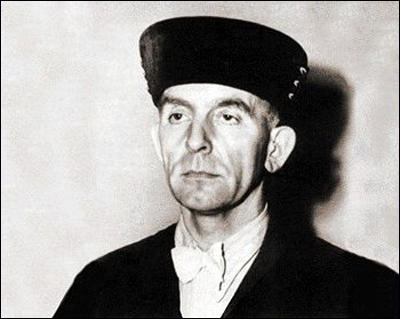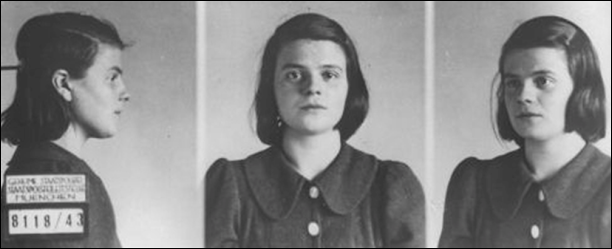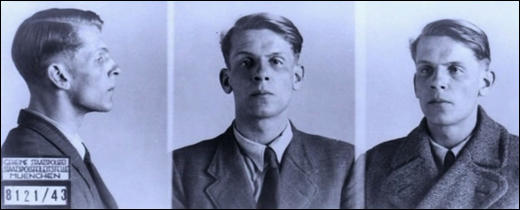
Arrest & Execution of the White Rose
"They arrived at the university, and since the lecture rooms were to open in a few minutes, they quickly decided to deposit the leaflets in the corridors. Then they disposed of the remainder by letting the sheets fall from the top level of the staircase down into the entrance hall. Relieved, they were about to go, but a pair of eyes had spotted them...The doors of the building were immediately locked, and the fate of brother and sister was sealed."
~ Inge Scholl
When the Scholl siblings were spotted distributing leaflets, they were immediately arrested and searched. The Gestapo found a draft of the sixth leaflet signed by Christoph Probst, who was later arrested.
Judge Roland Freisler
In 1933, Freisler was appointed chief personnel officer in the Prussian Ministry of Justice. Later, in 1942, he was appointed President of the People's Court. Freisler was the judge during the students' trial on February 22, 1943, and told the court, "The accused have by means of leaflets in a time of war called for the sabotage of the war effort and armaments and for the overthrow of the National Socialist way of life of our people, have propagated defeatist ideas, and have most vulgarly defamed the Führer, thereby giving aid to the enemy of the Reich and weakening the armed security of the nation. On this account they are to be punished by death. Their honour and rights as citizens are forfeited for all time."

Roland Freisler
(Spartacus Educational)
(All Gestapo Photos courtesy of Spartacus Educational)
"Stay strong, no compromises"
~ Hans Scholl, 1943, his last words to his siblings
Transcripts of trials held on February 22, 1943 & April 19, 1943
(libcom.org)
With three White Rose members in custody, investigators sought to find the others associated. Their trial began almost immediately, and the trio was sentenced to death by guillotine–first Hans, then Sophie, and finally Christoph. Both attorneys for the students were appointed to defend them; so, although they asked for a lesser punishment, they didn't fight back when the students received their sentence. When the remaining founding members were located, they were each arrested and ultimately sentenced to death.
"They bore themselves with marvelous bravery. The whole prison was impressed by them. That is why we risked bringing the three of them together once more-at the last moment before the execution. If our action had become known, the consequences for us would have been serious. We wanted to let them have a cigarette together before the end. It was just a few minutes that they had, but I believe that it meant a great deal to them"
~ Stadelheim Prison Guard, 1943
Conclusion
(TED-Ed's "The Secret Student Resistance to Hitler - Iseult Gillespie)
The White Rose proved that in times when violence and fear reigned in Germany, good consciences still existed. These college students were willing to give their lives for the betterment of their country. Their activism helped other German citizens with similar beliefs realize that they weren't alone. The courage, power, and bravery of the White Rose underpin its significance.


